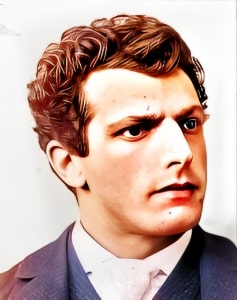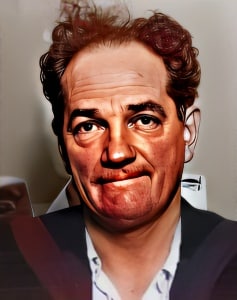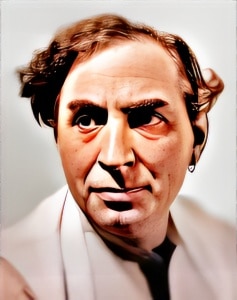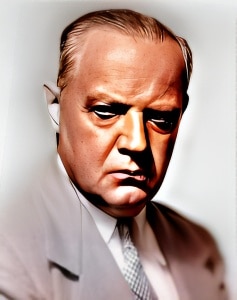 Henry Bergman, a prominent figure in the silent film era, was born on February 23, 1868, in San Francisco, California.
Henry Bergman, a prominent figure in the silent film era, was born on February 23, 1868, in San Francisco, California.
With a career spanning several decades, Bergman’s contributions to the world of cinema are noteworthy and multifaceted. He is best known for his collaborations with the iconic Charlie Chaplin, but his work extends beyond his association with the famous tramp.
Henry Bergman’s journey into the world of entertainment began in vaudeville and the theater. He started his career in stage productions, honing his acting skills and versatility as a performer. His experience in live theater would serve as a valuable foundation for his later work in the emerging medium of film.
Henry Bergman’s most enduring and celebrated collaboration was with Charlie Chaplin, one of the most iconic figures in the history of cinema. The partnership between Bergman and Chaplin began during the Mutual Film Corporation era, where Bergman took on various roles in Chaplin’s films.
Bergman’s imposing physical presence, expressive face, and knack for physical comedy made him an ideal supporting actor in Chaplin’s work. He often played authoritative or comical figures, providing a perfect foil to Chaplin’s lovable tramp character. Their on-screen chemistry and comedic timing were essential to the success of many classic Chaplin films.
While Henry Bergman is most renowned for his collaborations with Chaplin, his acting career extended to other silent film productions. He showcased his versatility by taking on a wide range of roles, from comedy to drama. Bergman’s ability to adapt to different genres and characters underscored his skill as an actor.
Beyond his acting roles, Henry Bergman ventured into directing, further demonstrating his multifaceted talent in the film industry. He directed a few silent short films, including “The Woman Who Did Not Care” (1916) and “ A Dog’s Life” (1918), the latter of which featured Charlie Chaplin. Bergman’s experience as a director enriched his perspective as an actor and collaborator.
Henry Bergman’s legacy in silent cinema endures through his memorable performances alongside Charlie Chaplin. He contributed to Chaplin’s masterpieces, such as “The Gold Rush” (1925), “City Lights” (1931), and “Modern Times” (1936), playing a variety of characters that left a lasting impression on audiences.
Bergman’s versatility as an actor and his ability to adapt to different genres made him a respected figure in the film industry. His work with Chaplin and other filmmakers of the silent era remains a testament to his enduring impact on early cinema.
In recognition of his contributions, Henry Bergman received a star on the Hollywood Walk of Fame, cementing his place in the pantheon of film legends. He passed away on October 22, 1946, but his work continues to captivate and entertain audiences, and his collaborations with Charlie Chaplin remain a defining aspect of his remarkable career.
Loading live eBay listings...




